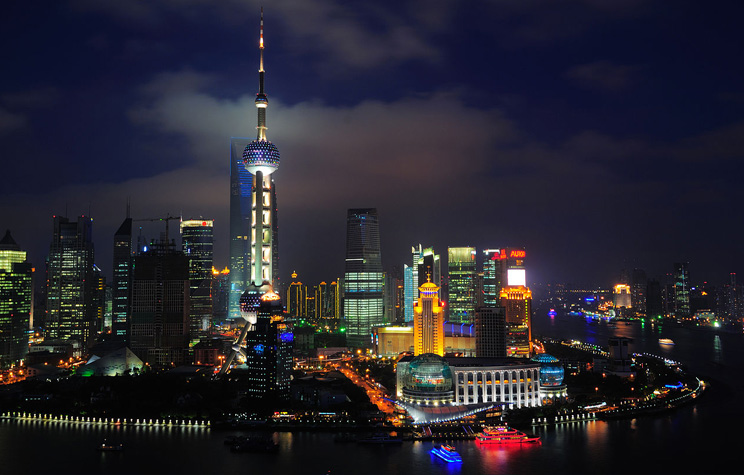For the first time in recent history, the state of China’s economy is the object of examination, not only by “China experts” – provided such an animal exists – but by everybody interested in current economic conditions anywhere in the world. For the first time we are seeing that what happens to the Chinese economy can have an immediate effect on us through those most unpredictable creatures, the financial markets. The situation resists any attempt at simple explanation, which should come as no surprise. But by delving deeper than the most apparent symptoms of crisis one may gain a better understanding of it.

Change of Model
The main priority of domestic economic policy under the new leadership has been to make aggregate demand depend less on exports and public investment and more on household consumption. This is not a well-defined policy with clear responsibilities and standard, proven policy tools; it is a deep and wide reform process. On the one hand, there are no infallible mechanisms to stimulate household consumption; reducing corporate savings – the bulk of private savings – would require better access to credit by private firms, and consequently stricter conditions for state-owned enterprises.
On the other hand, since public investment is not only an economic lever, but also a very effective political tool, restraining it means ceding some control; the authorities risk being seen as defenceless against a sudden fall in demand. It is obvious that engaging on such a reform path, whatever its likely long-term benefits, means lower growth in the short run.
World Crisis
This prospect was, of course, worsened by the crisis that started in the fall of 2007 and reached its peak in 2009, but which has refused to go away for the last seven years. The authorities tried to compensate for the fall in external demand with the usual tools: monetary policy, injecting large quantities of money into the economy and lowering the required reserve ratio for banks, and fiscal policy, with new public investment programmes, thus going against their previous commitment (almost everybody would have done the same!). We don’t know the results of the new public investments. The result of higher domestic credit was, of course, a vast stock market bubble, made larger by the unexpected length and depth of the economic crisis afflicting China’s main customers, and tolerated in part because a larger role for the stock market could signal a will to rely more on the market mechanisms of resource allocation.
Then, in August, the bubble burst (insiders today or historians ten years from now may tell us why, but it doesn’t matter, it had to burst). The authorities tried to support the market with large purchases ($150 billion is the quoted figure), but with little success. Observers began to ask themselves whether this time the authorities might have been overwhelmed, the growing mistrust may have been based on little hard evidence, but once again, this does not matter.
The Renminbi
At the same time, the authorities decided to change the peg of the renminbi against the dollar and to allow the currency to slide faster than at the previous rate, a move that has generated much speculation, and for which at least three explanations, which are not mutually exclusive, can be advanced. First, China was trying to increase its exports through a competitive devaluation; a not wholly convincing explanation, since China would not like to be seen as starting a currency war. Second, that it wanted to loosen its hold on the exchange rate to gain admittance to the basket of currencies making up the IMF’s SDR; an interesting explanation, since the renminbi had appreciated by 25% against the dollar since 2010, but a little farfetched, since it implies the very unlikely suggestion that international considerations had taken precedence over domestic concerns. Third, that the devaluation was an attempt to stop the capital outflows that had been taking place in recent months ($70 billion in July alone). The decision may have drawn a little from the three explanations, but the last is the most interesting, since it points to the need to watch the capital account (called the “financial account” in recent manuals), whose liberalization is the key to the renminbi becoming a truly international currency.
Prospects
There is little doubt that the first priority of the authorities will be to restore growth; not being members of the Eurozone, they need not believe that growth is helped, in the short run, by supply-side reforms. Thus they will likely resort to the usual “Keynesian” remedies. Other priorities – reform and corruption, as well as further liberalization of the capital account – will probably be put on the back burner. Since these are needed for long-term health, the task of policy will be to keep the right balance between the two sides.
Meanwhile, the effects of the Chinese stumble are already being felt; not so much through the usual trade channels – those have already done their work – as through the financial markets: China has added a further element of uncertainty, no less significant than the FED’s decision to start tightening. For the first time, the condition of China’s economy is a visible component in the current economic climate , and not an especially bright one. This time, China is really on our doorstep.



I think the fact that most countries around the world are in some way (directly or indirectly) investing in china, we could actually predict it. A crisis in China will influence the rest of the world and countries should be fully aware of that. I totally agree with prof.Pastor. Great article! Thank you!
Sure, why not?
I think it may also have an impact out of many European companies, electronics or textiles, which manufactured in China to countries such as India.
Not just in European companies, in Chile have a big impact too, because we depend from they demand of copper…
Regards
I agree. In fact, Prof. Videla talked about China and Latin America in a previous post: https://blog.iese.edu/economics/2015/07/07/latin-america-no-more-pennies-from-heaven/